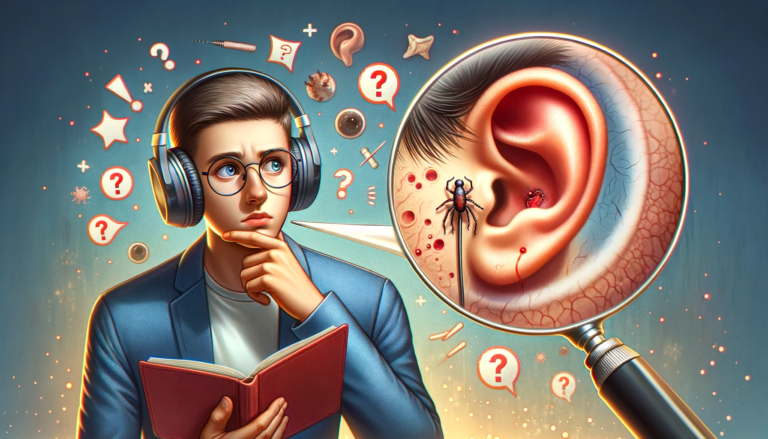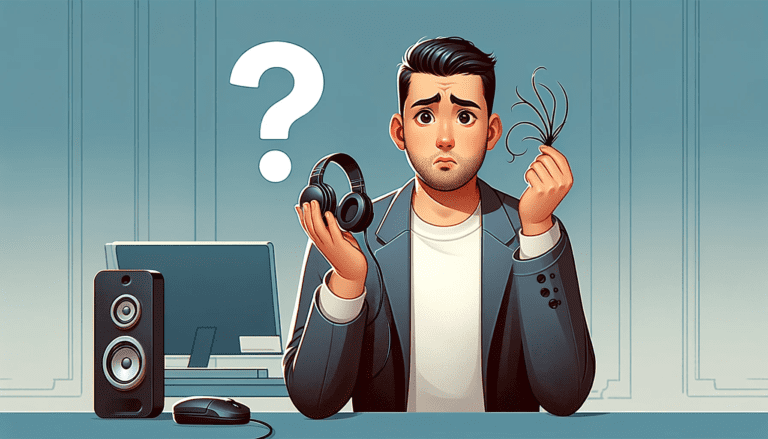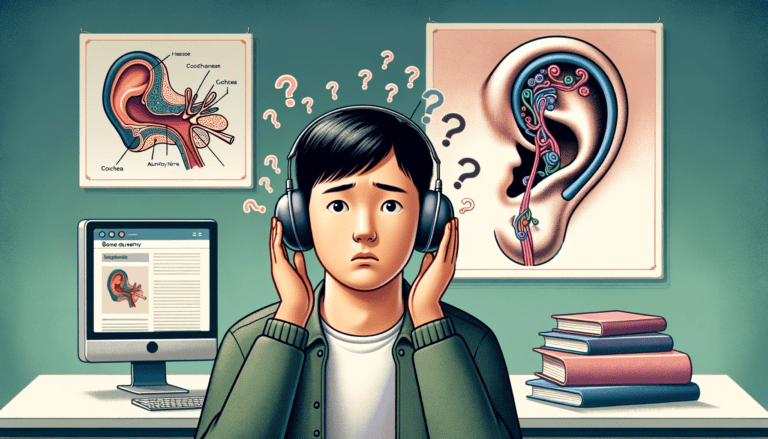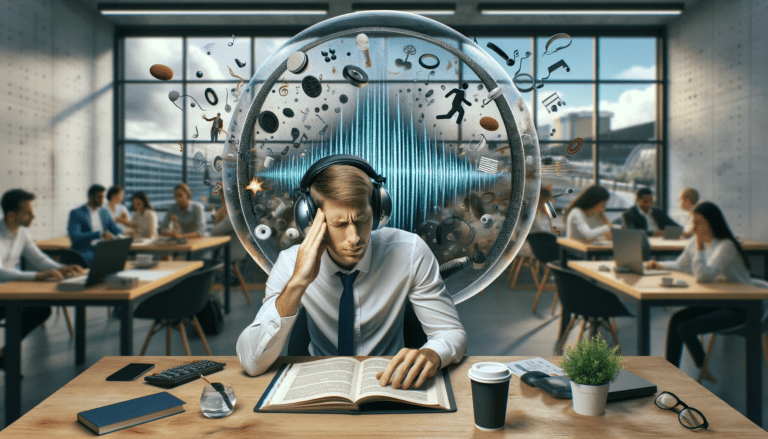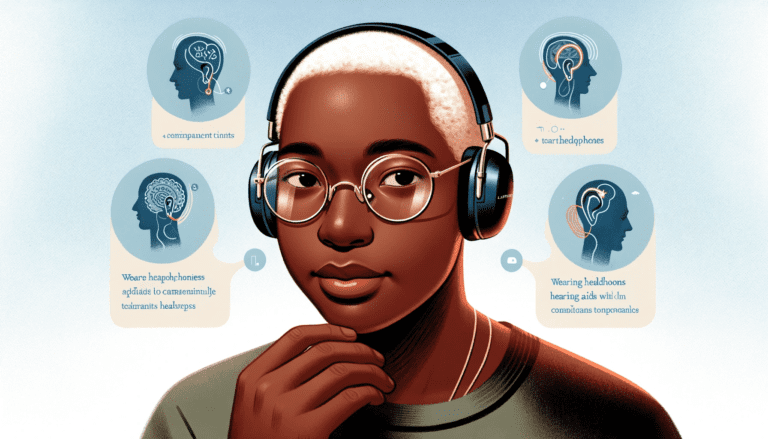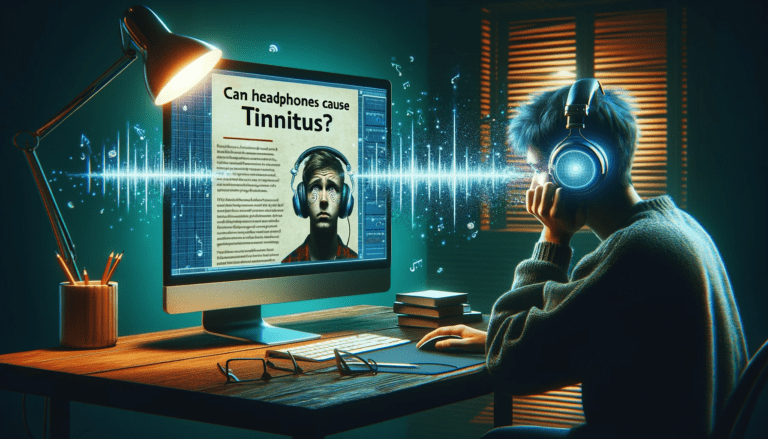Have you ever wondered what’s happening in your ears when you’re drowned in your favorite tune, genre, or podcast? Can those noise-canceling headphones on your ears safeguard your hearing abilities? Let’s get straight to the answer:
Yes, they can. Offering a tranquil sanctuary amidst the chaos, noise-canceling headphones not only provide an immersive listening experience but also play a significant role in protecting your hearing health.
Join us as we delve deeper into the science behind these modern audio marvels, shushing the noise and enhancing your hearing health. Stay tuned – you might find your next perfect pair right here!
The Science Behind Noise-Canceling Headphones
Ready to take a deep dive into the world of noise-canceling headphones? Let’s break it down. On a fundamental level, these ingenious devices work on a principle known as “active noise cancelation”, involving a bit of tech that’s as interesting as it sounds.
Active noise cancelation is all about fighting fire with fire — or in this case, noise with noise. Odd as it may seem, the technology employed in these headphones reduces ambient noise by producing sound waves that mirror incoming noise, essentially canceling each other out.
Here’s a basic outline of how it works:
- Microphones built into the headphones capture all the external sounds in your environment.
- The onboard electronics in the headphones then process this information.
- These electronics, informed by the sound profile collected by the microphones, create a mirror image of the noise – a waveform that is an ‘inverse’ of the original noise.
- This is then played back into your ears through the headphone speakers.
Because this ‘canceled-out’ wave and the original noise are exact opposites, they effectively neutralize each other when they meet, hence the name noise-canceling.
But it’s not just about the science that goes into them; the outcome is just as important. With reduced ambient noise, you no longer need to crank up the volume on your device to hear your music, podcast, or call clearly. This is the crux of why noise-canceling headphones may potentially protect your hearing. You may read also Can Headphones Cause Ear Infection
Understanding the Dangers of Excessive Noise to Our Hearing
Just like an artist’s vision or a chef’s taste, your hearing is an essential tool in experiencing the world around you. That’s why it’s essential to understand that our sense of hearing is not invincible. Unfortunately, it can be adversely affected by continued exposure to high-decibel sounds.
But exactly, what constitutes excessive noise? Noise is measured in units called decibels (dB). Sounds less than 75 decibels, even after a prolonged exposure, are unlikely to cause any hearing damage. However, persistent exposure to noise levels above 85 decibels can potentially lead to noise-induced hearing loss (NIHL). Some everyday sounds like heavy traffic, noisy restaurants, and lawnmowers fall into this potentially dangerous category.
Here’s a quick perspective: a conversation in a restaurant is around 60 dB, using a lawnmower is around 90 dB, a loud rock concert is around 120 dB, and a siren from an emergency vehicle can reach up to 130 dB.
In the context of headphones, you may wonder how loud is too loud. To put it in perspective, most MP3 players today can produce sounds up to 105 decibels. That’s louder than what your ears should be safely exposed to over a significant period. When you crank up the volume on your headphones, essentially, you’re setting the noise levels dangerously close to the ‘loudness’ of a live rock concert.
So, what happens when we subject our ears to excessive noise?
When sound waves enter our ears, they’re transformed into nerve signals recognized by our brain. This process involves the very delicate and sensitive cells within our inner ear. However, prolonged or repeated exposure to loud noise can damage these cells leading to NIHL. The more intense the sound and the longer the exposure, the more likely hearing damage will result. NIHL is often gradual, painless, and, most importantly, preventable, which is where noise-canceling headphones step in!
It’s also important to understand that once these auditory nerve cells are damaged, they don’t regenerate. Irreparable damage to your hearing can lead to conditions like tinnitus (ringing in your ears) or worse, complete deafness.
Keep the volume down, kids – your ears will thank you for it!
The Role of Noise-Canceling Technology in Preserving Hearing Health
Noise-canceling technology is designed to create a quieter listening experience. But did you know it also plays a significant role in protecting your hearing health? Here’s how it works.
Noise-canceling headphones work on the principle of ‘destructive interference’. They have microphones built into them that pick up low-frequency ambient noise. This noise is then processed by an onboard electronics package that creates a sound wave which is exactly out of phase with the original noise. The result is the active ‘cancellation’ of the unwanted sound.
By reducing the amount of ambient noise that reaches your eardrum, noise-canceling headphones allow you to listen to your music or other audio at a lower volume. This is where noise-canceling technology comes into play for hearing conservation. The lower the volume that you expose your ears to, the less likely you are to damage your hearing over time.
How are noise-canceling headphones different from regular headphones in this regard, you might ask? Regular headphones can, indeed, also decrease the amount of external noise you hear. Nevertheless, they do so by having you turn the volume up to overcome the ambient noise. This leads to greater exposure to high volumes and, potentially, to noise-induced hearing loss.
In contrast, with noise-canceling headphones, you’re reducing the need to elevate volume. This way, you’re less likely to harm your ears due to excessive noise levels. Therefore, while noise-canceling technology may not directly enhance your hearing, it undoubtedly presents a safer, gentler, alternative for your ears in noisy environments.
Note: Although noise-canceling headphones offer a significant degree of protection against noise-induced hearing loss, it’s still important to limit the length of exposure to loud sounds. Hearing protection is a two-part equation – volume and duration. It’s not just about how loud the sound is, but also how long you’re exposed to it. Balancing volume levels and listening durations when using headphones, can do wonders for your hearing health. You may read also Can Headphones Cause Tinnitus
The Proven Benefits of Noise-Canceling Headphones for Your Ears
Now that we’ve had a look at how noise-canceling headphones work and why excessive noise is harmful to our hearing, let’s dive into the key topic of this article: the benefits of noise-canceling technology for your ears. And just so you know, these benefits have been thoroughly researched and are scientifically proven, so you can trust what we’re about to share.
First and foremost, noise-canceling headphones reduce the strain on your ears, which is inherently good for your hearing health. Believe it or not, we can often unconsciously overlook the damage being done by excessive noise in our environments. The everyday noises of busy city streets, construction sites, loud music, or even the constant hum of machinery in workplaces can significantly strain your ears over time. By eliminating these background noises, noise-canceling headphones help reduce the overall strain experienced by your ears.
Secondly, noise-canceling headphones let you listen at lower volumes. Remember how we discussed that listening to loud music or other audio can be dangerous to our hearing? With noise-canceling technology, you no longer need to crank up the volume to drown out background noise. You can listen at lower, safer levels, thereby reducing your exposure to damaging noise levels.
And lastly, noise-canceling headphones can improve concentration, result in better productivity, and reduce stress.
- This might sound odd to you at first, but think about it: noise-canceling headphones can create a peaceful, quiet environment anywhere – be it a noisy office, a loud café, or even a bustling street. The reduced noise distractions can enhance your focus, making you more productive at work or study.
- Furthermore, various studies show that excessive noise can increase stress levels. By eliminating this noise, noise-canceling headphones can help provide a calmer, more serene environment, thus promoting mental well-being along with hearing health.
In conclusion, these three benefits combine to make noise-canceling headphones a solid investment in your hearing health. Not only do they protect your ears by reducing strain and enabling lower-volume listening, but they also contribute to improving your mental health by way of increased focus and reduced stress. It’s a win-win! You may read the guide on Do Headphones Cause Hair Loss
Comparing Noise-Canceling Headphones with Regular Headphones: What’s Best for Your Ears
When it boils down to a choice between regular headphones and noise-canceling headphones, your hearing health is a significant factor to consider. But what is the difference between these two types of headphones, and how can they impact your hearing? Let’s break it down for you.
Regular headphones, whether they are over-the-ear or in-ear versions, generally provide good sound quality. However, they can sometimes struggle to drown out background noise. You’re likely to increase the volume to counteract this noise, potentially placing your hearing at risk.
On the other hand, noise-canceling headphones are designed to minimize outside noise. That’s why they allow you to listen at lower volumes than you would with regular headphones. Sounds perfect, right? There’s just one small catch: not all noise-canceling headphones are created equal.
Features to Consider When Choosing Headphones
- Active vs. Passive Noise Cancellation: The difference between active and passive noise cancellation lies in the way unwanted sounds are blocked. Active noise-canceling headphones generate sound waves to negate ambient sounds, making them excellent for blocking out consistent, low-frequency noises (like the hum of an airplane engine). Passive noise cancellation, found in most regular earphones, relies on physical barriers to reduce noise.
- Comfort: Wearing uncomfortable headphones for extended periods can be damaging to your ears in itself. Always try before you buy to make sure the fit and comfort are suitable for you.
- Volume Levels: Both regular and noise-canceling headphones should ideally have volume limits to protect your ears from accidental exposure to high volumes. Be particularly mindful of this feature if you have sensitive ears or if you’re buying for children.
Moreover, it’s essential to remember that while noise-canceling headphones can help protect your hearing by allowing you to listen at lower volumes, they should be used responsibly. Extended, high-volume use of any headphones can potentially harm your hearing. The best practice remains to keep the volume down and take regular breaks to give your ears a chance to recover. You may check also Can Bone Conduction Headphones Cause Hearing Loss
Expert Opinions on Noise-Canceling Headphones and Hearing Protection
What are the thoughts of experts on the issue of noise-canceling headphones and hearing protection? We hear from audiologists, sound engineering professionals, and healthcare practitioners.
“Noise-canceling headphones can be a valuable tool in preserving hearing health, especially in noisy environments,” says Dr. Jill Meltzer, an audiologist and an advocate for hearing health.
She explains that noise-canceling headphones differ significantly from traditional headphones. These headphones reduce the ambient noise around you, which causes you to crank up the volume. Consequently, it’s a safer option than the conventional ones.
Respected sound engineer, Richard Palmer throws more light on this. He asserts that with noise-canceling headphones, “you’re not only getting a better sound experience but also protecting your hearing a little more.”
Noise-canceling headphones use active noise control or active noise reduction to reduce unwanted sound, explains Richard. This essentially allows you to listen at lower volumes, providing a buffer between your ears and harmful noise levels.
Healthcare practitioner, Dr. Maria Gomezi believes that “Noise-canceling headphones can indeed be a part of a robust strategy to protect one’s hearing over time. Not as a standalone mitigation effort, but along with responsible audio consumption habits.”
Experts generally agree that noise-canceling headphones can help protect your hearing to some extent. However, they stress the importance of practicing responsible listening habits. This includes limiting exposure to high volume levels and taking regular breaks when using headphones.
Remember: Noise-canceling headphones do not make you immune to potential hearing damage caused by excessive volume levels. Always practice responsible listening habits, and take regular breaks from headphone use.
Addressing Common Myths About Noise-Canceling Headphones
Let’s take a moment to address some of the common myths floating around about noise-canceling headphones. These misconceptions can often create a barrier to utilizing this effective technology for hearing protection. Dispelling these myths can lead to a better understanding and safer use of noise-canceling headphones.
- Myth: Noise-canceling headphones block all noiseThis is not entirely true. Yes, noise-canceling headphones are designed to significantly reduce ambient noise, but they don’t completely block out all sound. They’re most effective at canceling out consistent, low-frequency noise, like the hum of an airplane or a running fan. They may not be as effective with sudden, unpredictable, or high-frequency noises.
- Myth: Using noise-canceling headphones constantly will damage your hearing is a widespread misconception. As we explained earlier, noise-canceling headphones actually have potential benefits for your hearing health. They allow you to listen to audio at a lower volume, decreasing your exposure to harmful sound levels.
- Myth: Noise-canceling headphones result in a decreased sound quality strictly speaking, this isn’t true. In fact, by reducing background noise, they often enhance the listening experience by allowing users to focus on the audio without cranking up the volume. However, like any product, sound quality can vary between different models and brands.
Always remember to do your homework when picking out noise-canceling headphones. Consider each feature carefully, read reviews, and take the time to understand how they work. This is the best defense against falling prey to these common myths. You may see also Can You Wear Headphones with Hearing Aids
Conclusion
Wrap-up time! Noise-canceling headphones have merits when it comes to not only providing a superior audio experience but also offering a level of protection for your hearing. They’re scientifically engineered to neutralize potentially harmful ambient noises, thereby reducing your exposure to excessive sound levels that could damage your hearing over time. While they aren’t a foolproof safeguard against all hearing-related issues, they certainly have a place in promoting a safer listening environment.
So, next time when you grab your audio equipment, remember this: noise-canceling headphones don’t just deliver your favorite beats, they also look out for the health of your ears!


